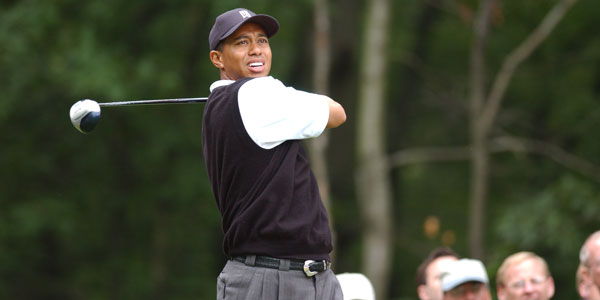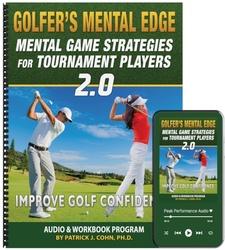
How to Trust in a New Golf Swing
How often do you tinker with your golf swing during the week? Working to improve your golf swing is a good thing, right?
After all, if you find that perfect swing, you will never shoot a high score again, right? Well golf is not that easy…
Having sound swing mechanics is necessary in order to play consistent golf… No golfer would argue that statement.
But consistent golf requires some level of consistent mechanics and trust in your swing.
Here’s the conundrum:
How do you improve your swing and trust your swing on the course at the same time?
Here’s how the “swing conundrum” often unfolds…
You have a disastrous round of golf.
You feel confident up until you hit the greens.
When it is time to putt, your game unravels.
Bogeys, double-bogeys and misses from two feet away become the norm.
So you go to instructor and re-work your stroke.
Every part of your putting is dissected.
You try shortening up your stance, changing your grip, altering your stroke speed and tweaking the alignment of your upper body, hoping you found the solution.
You are nervous to test your new mechanics at the next tournament.
You remind yourself over and over what you need to do but the results are the same… three-putts, four-putts and even a five-putt.
So it’s back to the drawing board to make more adjustments…
Over-analysis and constant tinkering with your swing are the enemies of confidence, trust and consistency.
If you want to improve mechanics, you must do this at the right time and work on one component of the swing until it becomes well-learned and burned into you memory–instructors call this muscle memory, but it’s actually motor memory.
But the key is to work on that one component during practice.
Tournament play is the time to rely on the work you have done and just swing the club from memory or what you grooved in practice. You can assess your performance when you get home or in the next practice session, not when you are playing.
Tiger Woods has been plagued with injury and bad performances for several years.
Over the years, Woods has switched swing coaches, reworked his technique and tinkered with his swing a lot in the pursuit of consistency.
Recently, Woods is making a successful comeback finishing T-2 at the Valspar Championships.
Woods has attributed his resurgence to one word… TRUST!
WOODS: “I’ve gone back to a lot of stuff I used to do with my dad and how he first taught me how to play golf. I finally have gotten to the point where my back is good enough where I can let my hands tell me what to do. I’ve built this golf swing … with my hands. My dad always used to say that’s the only thing we have direct contact with the club, so trust your hands.”
Golf is a challenging game. Don’t complicate matters by over-analyzing, over-thinking and searching for the perfect golf swing.
If you want to play your best on a more consistent basis, trusting what you have on match day is a must!
How to Develop Greater Trust in Your Swing:
Don’t overload yourself with too much technical advice at one time. The mind can only process one swing thought at a time when you play or practice golf.
In practice, pick one part of your swing, such as your back swing, and use one thought or swing cue to remind yourself of what you need to do, such as smooth.
During tournaments, remind yourself to “just swing.” Try to boil down your swing cues into one feeling or image, such as tempo.
If you’re a visual player, try to focus on the shape of the shot or the target. Allow your swing to react to the picture of the target in your mind.
Use your practice swing as a rehearsal swing, not a checklist of mechanics; focus on the one swing cue you want to feel over the ball, such as balance.
For more mental strategies for working on trust in golf, check out the “Golfer’s Mental Edge” audio and workbook program:
Related Golf Psychology Articles
- Improving Your Golf Swing Takes Patience
- Golfers Who Can’t Stop Tinkering with their Golf Swing
- How to Stop Overthinking During Your Swing
- Subscribe to The Golf Psychology Podcast on iTunes
- Subscribe to The Golf Psychology Podcast on Spotify
Golfer’s Mental Edge 2.0

Do you suffer from fragile self-confidence after missed hitting shots or making mistakes, playing with strict or high expectations that undermine confidence, or the inability to play freely and relaxed on the course?
Successful golfers have learned how to perform with ultimate confidence in competition, so we’ve developed The Golfer’s Mental Edge 2.0 Workbook and Audio program to help you do this!
The Golfer’s Mental Edge 2.0 program includes the top 11 mental training sessions I do with my personal students to help them boost their mental game and improve consistency on the course!